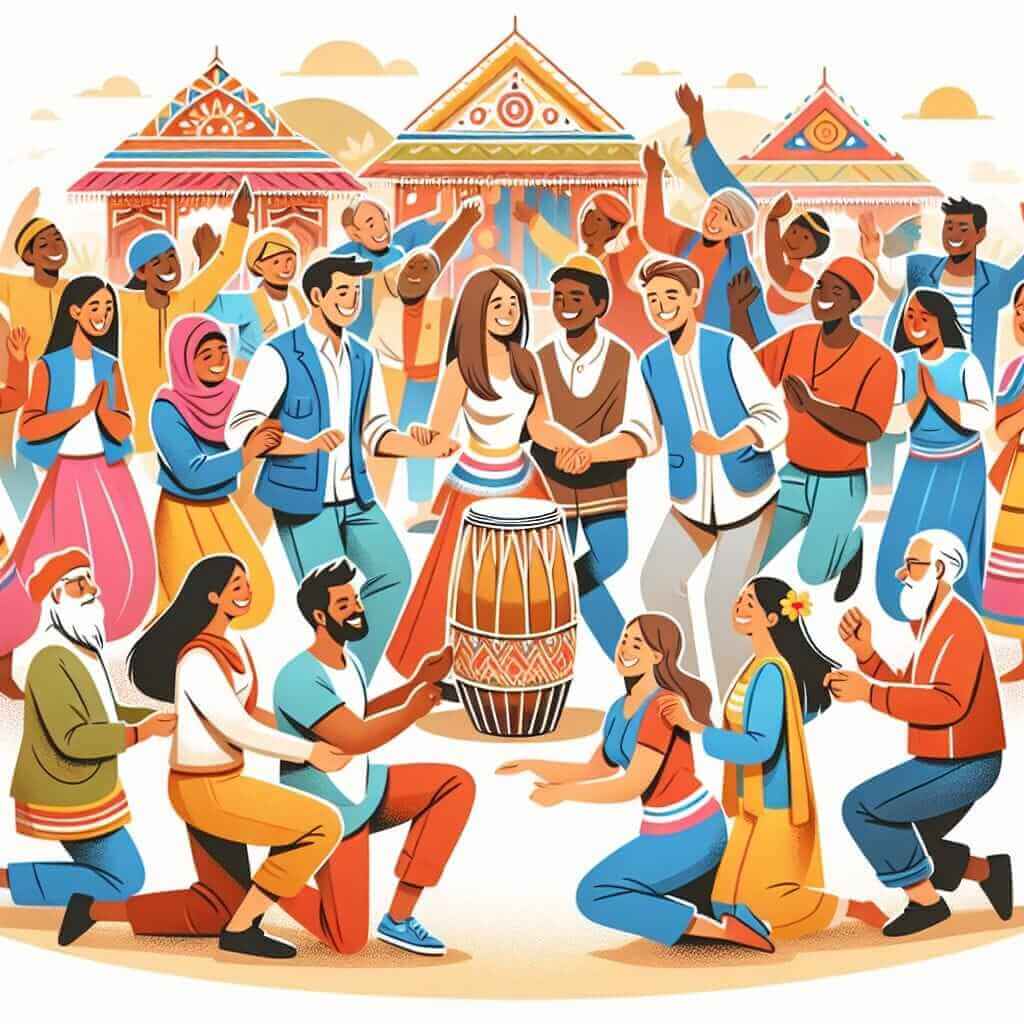The topic of “impact of tourism on local cultures” has frequently appeared in actual IELTS Writing Task 2 exams, and it continues to be a relevant and significant subject. Tourism has a profound effect on local cultures, sparking debates on whether these impacts are predominantly positive or negative. Given the increasing globalization and the ease of travel, this topic will likely persist in future IELTS exams. Historically, IELTS prompts have tackled various facets of tourism, including cultural exchange, economic benefits, and negative cultural impacts.
Sample Prompts from Past IELTS Exams
- Some people say that tourism has a negative effect on local cultures and communities. Others say that a greater understanding and tolerance of different cultures result from tourism. Discuss both views and give your opinion.
- Tourism has become a significant source of income for many regions, but it also has a negative impact on local cultures and the environment. To what extent do you agree or disagree?
- How is globalization impacting tourism and local cultures? Discuss the positive and negative aspects.
Main Content
Selected Prompt
Some people believe that the increase in tourism is leading to the erosion of traditional cultures, while others think that it is leading to a greater appreciation of cultural differences. Discuss both views and give your opinion.
Analysis of the Prompt
The task requires you to discuss both viewpoints regarding the impact of tourism on traditional cultures and provide your own opinion. It’s essential to address both perspectives adequately and support your opinion with relevant examples and explanations.
Model Essay
Tourism has undeniably become a major global industry impacting a myriad of local cultures either positively or negatively. While some individuals argue that the boom in tourism is causing traditional cultures to erode, others believe it fosters a better appreciation and understanding of diverse cultural landscapes. This essay will discuss both viewpoints before concluding with my own perspective.
On the one hand, it is often argued that tourism can contribute to the degradation of traditional cultures. In many tourist destinations, local customs and traditions are commercialized to cater to the tastes and preferences of tourists. For instance, traditional dances or festivals which were originally sacred rituals have often been modified and performed daily to entertain tourists. This commercialization can lead to the loss of the original significance and meaning of these cultural practices, turning them into mere spectacles.
Furthermore, the influx of tourists can sometimes lead to cultural homogenization, where distinct cultural identities are lost amidst a flood of global influences. Tourists bring their own customs, habits, and ways of life, and in order to accommodate them, local traditions may be altered or abandoned. This is evident in many tourist hotspots where international fast-food chains and global brands have replaced local eateries and shops, stripping away the unique cultural flavor of these regions.
On the other hand, proponents of tourism argue that it can enhance the appreciation and preservation of traditional cultures. Tourism can serve as a catalyst for cultural exchange and mutual understanding. When tourists engage with local cultures, they gain insight and respect for different ways of life. In turn, locals also become more aware of their own cultural heritage and the importance of preserving it. For instance, many cultural heritage sites and traditional festivals survive and thrive because of the financial support brought by tourism. This influx of revenue can be used for the restoration and maintenance of cultural landmarks and support local artisans.
In my opinion, while there are valid concerns about the negative effects of tourism on local cultures, it is also true that tourism can lead to greater cultural appreciation and preservation when managed responsibly. Sustainable tourism practices that respect and protect local traditions should be promoted, ensuring that the cultural integrity of tourist destinations is maintained while allowing for cross-cultural exchanges.
In conclusion, the impact of tourism on local cultures can be both detrimental and beneficial. It is crucial to strike a balance where tourism is developed in a way that it enriches local cultures and helps preserve their unique heritage rather than undermining it. (365 words)
Important Notes for Writing
- Vocabulary and Grammar: Use varied sentence structures and advanced vocabulary to demonstrate language proficiency.
- Ensure to employ complex and compound sentences.
- Use conditional clauses and passive voice where appropriate.
- Coherence and Cohesion: Use clear writing to guide the reader through your argument.
- Employ linking words such as “furthermore,” “for example,” “on the other hand,” and “in conclusion.”
- Examples: Provide relevant examples to support your points.
- Draw on historical contexts or hypothetical situations to illustrate your views.
Advanced Vocabulary
- Erosion (noun) – /ɪˈroʊ.ʒən/: The process of gradually wearing down or destroying something.
- Commercialize (verb) – /kəˈmɜr.ʃə.laɪz/: To manage or exploit (an entity) in a way designed to make a profit.
- Homogenization (noun) – /həˌmɑd͡ʒ.ɪn.əˈzeɪ.ʃən/: The process of making things uniform or similar.
- Catalyst (noun) – /ˈkæt.l.ɪst/: A person or thing that precipitates an event or change.
- Restoration (noun) – /ˌrɛs.tərˈeɪ.ʃən/: The action of returning something to a previous good condition.

Conclusion
The impact of tourism on local cultures is a multifaceted issue that includes both potential benefits and drawbacks. While tourism can sometimes lead to the erosion of traditional cultures, it can also foster cultural appreciation and preservation. Future IELTS prompts on this subject may include specific subtopics like environmental impacts, economic influences, or ethical tourism practices.
Preparing for IELTS Writing Task 2 involves understanding the nuances of such broad topics and practicing structured arguments. For more insights on related topics, consider exploring The Impact of Tourism on Local Communities and The Importance of Ethical Tourism.